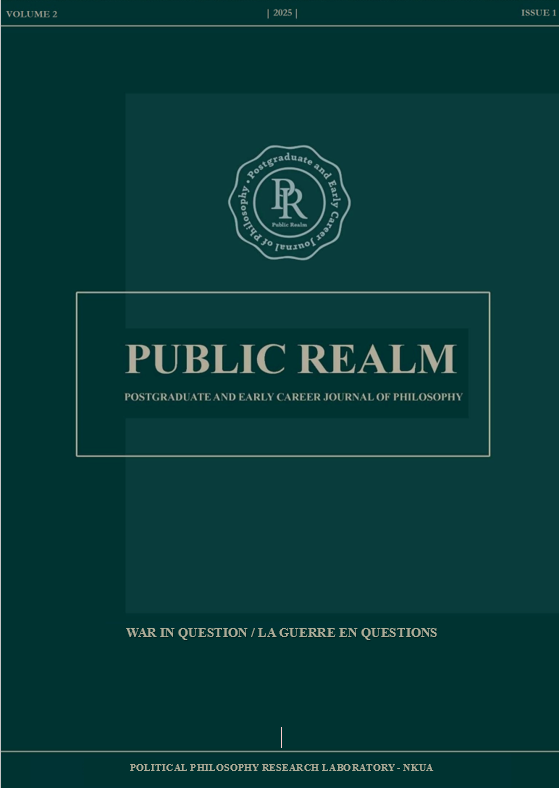Ideas in trenches: Power and polemics in Panagiotis Kondylis

Abstract
The author of the article attempts to examine the positions of Panagiotis Kondylis on the intellectual history and ideas’ polemical nature that is the basic feature for understanding the configuration and development of an idea-theory in history. In order to achieve a full understanding of the specific concept of the intellectual history, first of all we have to analyze the Greek thinker's positions on the power and the way in which the search for power as a basic and irrevocable anthropological condition leads to a polemic condition within the social field. This polemic condition is also evident in the field of ideas, as ideas can be seen as the attempt to form worldviews by the respective subject or group of subjects that have the purpose of self-preservation and expanding their power. Therefore, in this article the emphasis is placed on two different areas of Kondylis' thought, the philosophy of man and then on the description of the ideas’ formulation.
Article Details
- How to Cite
-
Λαθύρης Π. (2025). Ideas in trenches: Power and polemics in Panagiotis Kondylis. Public Realm. Postgraduate and Early Career Journal of Political Philosophy, 2, 13–24. https://doi.org/10.12681/pr.v2i1.36358
- Section
- Articles
Authors who publish with this journal agree to the following terms:
Authors retain copyright and grant the journal right of first publication with the work simultaneously licensed under a Creative Commons Attribution Non-Commercial International License (CC BY-NC 4.0) that allows others to share the work with an acknowledgement of the work's authorship and initial publication in this journal.
Authors are able to enter into separate, additional contractual arrangements for the non-exclusive distribution of the journal's published version of the work (e.g. post it to an institutional repository or publish it in a book), with an acknowledgement of its initial publication in this journal.
Authors are permitted and encouraged to post their work online (preferably in institutional repositories or on their website) prior to and during the submission process, as it can lead to productive exchanges, as well as earlier and greater citation of published work.


